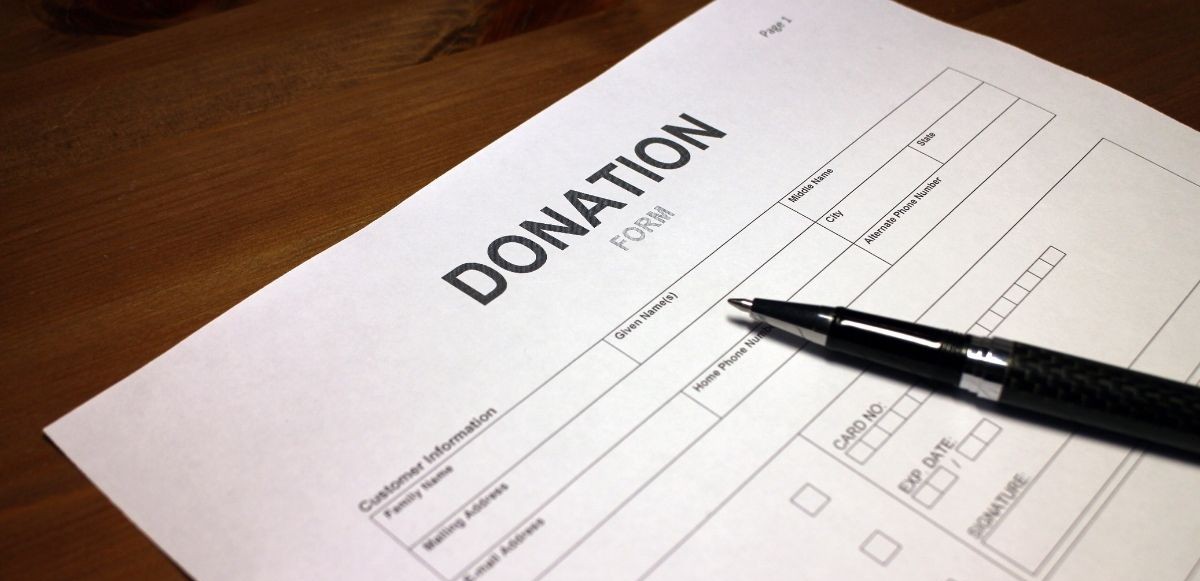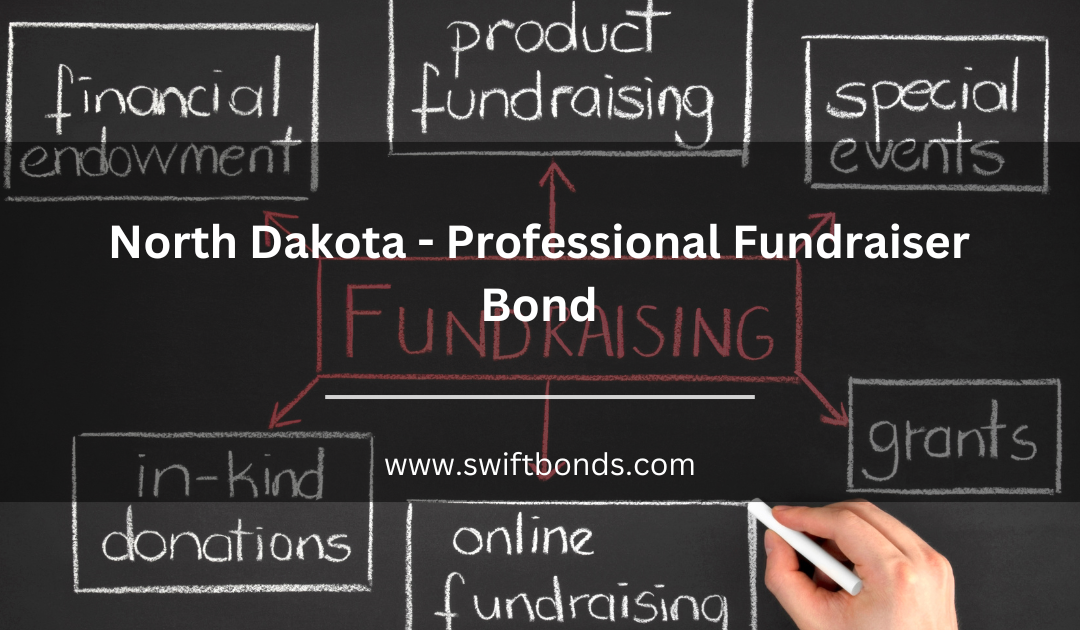Get an Instant Quote on Professional Fundraiser Bond
Introduction
From our perspective, operating as a professional fundraiser in North Dakota means more than collecting donations—it’s about building trust. Whether you’re representing a charitable organization or coordinating a campaign, the state requires you to back your promises with a financial guarantee: the North Dakota – Professional Fundraiser ($20,000) Bond.
This bond is a legal requirement designed to protect donors and nonprofits from dishonest fundraising practices. When you’re bonded, you’re essentially guaranteeing that the funds raised will be handled honestly and in compliance with state law. If violations occur—such as misappropriation of donations or failure to disclose financial details—the bond allows harmed parties to seek compensation.
Much like the North Dakota – USED Motor Vehicle Dealer ($25,000) Bond, which ensures auto dealers act ethically in transactions, the fundraiser bond reinforces public confidence. Both bonds aim to prevent financial harm, and both require annual renewals and adherence to state-specific regulations.
Securing the fundraiser bond is part of the licensing process with the North Dakota Secretary of State. Once in place, it signals that you take your fiduciary duty seriously—and that you’re equipped to manage donor trust responsibly.
Common Misunderstandings
We’ve noticed that many new fundraisers are unsure how this bond works. Some mistakenly believe it’s a license or that it insures their business. In reality, it’s a surety guarantee—meant to protect others, not the fundraiser. You’re the party responsible for reimbursing the surety if a valid claim is paid on your behalf.
Another confusion point is cost. The required amount is $20,000, but you won’t be paying that in full. Your annual premium is usually a small percentage of the bond—typically between $100 and $500 depending on your credit.
We’ve also seen cases where organizations overlook the bond entirely, leading to registration delays or fines. That mirrors what happens when auto dealers fail to maintain the North Dakota – USED Motor Vehicle Dealer ($25,000) Bond. In both sectors, proper bonding is non-negotiable.

Guidance from Swiftbonds
Based on our experience, Swiftbonds helps professional fundraisers meet state bonding requirements without the guesswork. We’ve worked with hundreds of individuals and firms across regulated industries—from charitable solicitors to financial service providers needing the North Dakota – Money Transmitter ($150,000) Bond.
When you work with Swiftbonds, you’ll benefit from:
-
Fast approvals—most bonds are issued same-day.
-
Low rates—premiums based on your credit and application profile.
-
Compliance review—to confirm the bond matches North Dakota’s official format.
-
Reminders—so you never miss a renewal deadline.
We know what’s at stake, and we’re here to help you stay licensed and trustworthy in the eyes of both regulators and donors.

Steps to Get Bonded
What we’ve discovered is that many fundraisers benefit from a simplified process. Here’s how to obtain the North Dakota – Professional Fundraiser ($20,000) Bond:
- Apply for Registration
Submit your application to the North Dakota Secretary of State Charitable Solicitation Division. - Request a Bond Quote
Provide Swiftbonds with basic information: legal name, EIN, business details, and a short questionnaire. - Pay the Premium
Based on your credit, most applicants pay $100–$500 per year for the $20,000 bond. - Receive Your Bond
We’ll issue the correct form, completed and signed, ready to be filed. - Submit to the State
Include the bond with your registration to finalize your approval.
These same steps apply to higher-amount bonds, such as the North Dakota – Money Transmitter ($150,000) Bond, though approval may involve more financial vetting.

What Happens If You’re Not Bonded
In our observation, skipping or mishandling bond requirements can lead to serious setbacks. Fundraisers without a valid bond may face:
-
Rejection or suspension of state registration.
-
Fines or penalties from regulatory authorities.
-
Damage to your public reputation and donor relationships.
We’ve seen similar risks unfold in auto sales when businesses let their North Dakota – USED Motor Vehicle Dealer ($25,000) Bond lapse. Licensing agencies treat bond compliance as foundational—not optional.
Keeping your bond active isn’t just about paperwork. It’s about signaling accountability. Swiftbonds helps you stay up to date, eliminating surprises during annual renewals.

Why It Pays to Be Compliant
We’ve learned that professional fundraisers who stay compliant enjoy smoother operations and better donor trust. When people know their money is going through a licensed, bonded solicitor, they’re more likely to give generously.
This bond gives peace of mind to nonprofits too. It shows that you’re not just a contractor—they’re working with someone who respects legal safeguards.
The same credibility applies to financial sectors. For example, applicants for the North Dakota – Money Transmitter ($150,000) Bond must prove they’re financially stable and trustworthy. Bonds are more than forms—they’re symbols of integrity.
By keeping your bond current and in good standing, you position yourself as a reliable fundraising partner in North Dakota.
North Dakota Law and Compliance
Under North Dakota Century Code § 50-22, all professional fundraisers operating on behalf of charitable organizations must register with the Secretary of State and post a $20,000 surety bond. The bond must be issued by a company licensed to operate in the state and must guarantee compliance with all charitable solicitation laws.
Violations covered by this bond include false advertising, failure to remit funds to the charity, and improper financial reporting. If a violation occurs, the harmed party (often a nonprofit or the state) may file a claim for compensation.
Fundraisers must maintain the bond for the full duration of their registration and renew it annually. The official state portal for charitable registration is https://sos.nd.gov.
In construction and public contracting, the North Dakota Little Miller Act (NDCC § 48-01.2-10) governs performance and payment bonds for public projects, requiring contractors to provide financial guarantees that protect subcontractors and taxpayers.
Conclusion
We’ve come to appreciate that the North Dakota – Professional Fundraiser ($20,000) Bond is more than a requirement—it’s a commitment to transparency, legal compliance, and donor protection. When your fundraising operation is bonded, everyone benefits: the public, the nonprofit, and your professional reputation.
Swiftbonds is proud to help fundraisers, dealers, and financial professionals meet their bond obligations quickly and affordably. Whether you’re applying for the North Dakota – USED Motor Vehicle Dealer ($25,000) Bond or the North Dakota – Money Transmitter ($150,000) Bond, we provide the support and service to keep your business running legally and smoothly.
Frequently Asked Questions
Who needs the North Dakota – Professional Fundraiser ($20,000) Bond?
We’ve often noticed that anyone soliciting donations on behalf of charitable organizations must obtain this bond before registering with the North Dakota Secretary of State.
How much does this bond cost each year?
We’ve often noticed that most applicants pay between $100 and $500 annually for this bond, depending on their credit score and business background.
What happens if I don’t have this bond?
We’ve often noticed that fundraisers without the required bond are denied registration and may face penalties. Operating without a bond is considered noncompliance.
Is this bond the same as insurance?
We’ve often noticed that people confuse the two. This bond protects the public—not your business. If a claim is paid, you are responsible for reimbursing the surety.
Can I get bonded if I have low credit?
We’ve often noticed that credit-challenged applicants worry they’ll be denied. Swiftbonds offers options for low-credit applicants, although rates may be higher.


